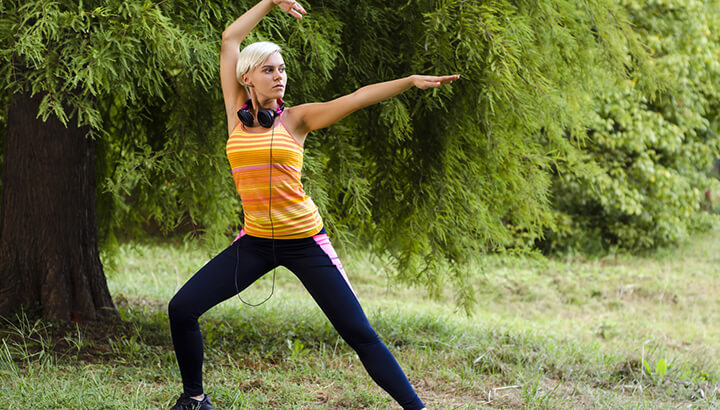Like meditation and yoga, tai chi is an ancient mind-body practice that has been embraced for thousands of years for its healing powers. At first glance, this practice looks somewhat like a dance, or someone performing slow-motion martial arts.
If you’ve never heard of tai chi, here’s a brief rundown: tai chi centers around mindfulness, breath control, balance, maintaining good posture, and gentle, open, circular motions. The movements of tai chi flow into one another in a slow, even rhythm, and these motions can be performed in sequence with breathing.
There are a great many benefits to tai chi. These include slowing the breath, relaxing the body and mind, improving sleep quality, and centering your attention on the present. Research has also found that this beautiful practice may be particularly beneficial to individuals who are suffering from post-traumatic stress disorder (PTSD).
PTSD may affect anyone who has survived or witnessed a traumatic event. It is even more common in veterans of combat than members of the general population, due to the things that these brave individuals have to undergo. PTSD can be highly debilitating to everyday life, and can bring with it symptoms such as hyperarousal, numbness, nightmares, re-experiencing the trauma, and avoidance of triggering situations. Anything that can help sufferers of this tragic condition is welcome, indeed.
How tai chi can help people with PTSD
A 2016 study performed by researchers at Boston University Medical Center tested the effects of tai chi sessions on a group of 17 veterans with PTSD symptoms. The study program consisted of four introductory tai chi sessions, where participants were immersed in the principles and basics of the practice. After the study, each and every participant said that they would recommend tai chi to a friend. A whopping 94 percent of the veterans reported that they were either “very satisfied” or “mostly satisfied” with the program.
Most participants reported engagement in the sessions, and stated that the practice was helpful in dealing with their PTSD symptoms. Based on these positive results, the study authors concluded:
“Tai Chi appears to be feasible and safe for veterans with symptoms of post-traumatic stress disorder (PTSD), is perceived to be beneficial and is associated with high rates of satisfaction. This study highlights the need for future investigation of Tai Chi as a novel intervention to address symptoms of PTSD.”
While this was a small study, the results are highly promising. More research needs to be done, but it appears that tai chi could have significant benefits for individuals with PTSD — both veterans and civilians are likely to find it helpful, if this study is a sound indicator.
Other benefits of tai chi
Along with these exciting study results, research has recently been uncovering a great many other important benefits of tai chi. Among these are relief of chronic neck pain, a reduced risk of falling by elderly people who practice tai chi, and even increases in brain size and resulting enhancements in cognition. That’s not all… tai chi has also been linked to:
- Maintaining bone density
- Aiding in weight loss
- Boosting immunity
- Improving cardiovascular health
- Alleviating certain types of pain
- Ameliorating asthma symptoms
- Boosting happiness
- Lowering stress
- Potentially lowering blood sugar levels
Because tai chi is based around gentle, deliberate motions, and is performed slowly, it is safe for people of all ages to perform, from the very young to the elderly. If you are looking for a new mind-body practice to get into (alone or with your family), tai chi is a truly excellent choice.
— Meditation Daily







